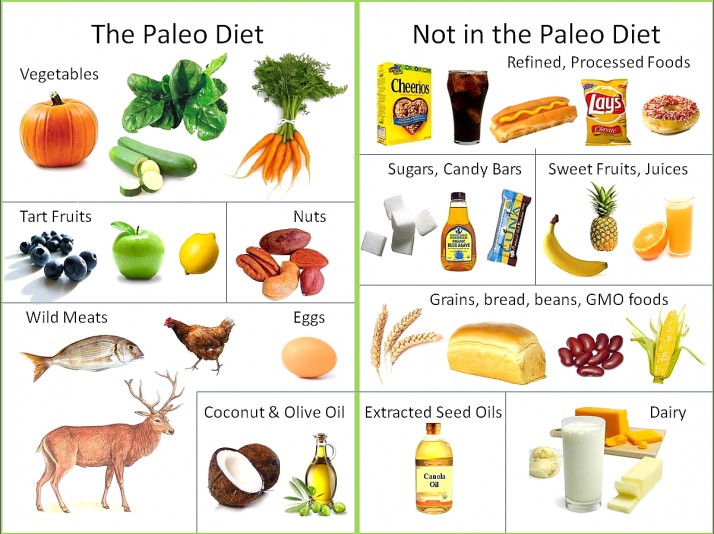Paleo adherents often say that their approach is not a diet but a lifestyle. The Paleo diet bypasses the dangers of modern, industrial foods for the healthy, sustaining ways of our primal ancestors. The pioneers of Paleo tried it experimentally and found exactly what they were looking for – a sane, healthy, unadulterated approach to food, fitness and health. Here’s why:
- It’s not a short term attempt to lose weight, it is a life-long commitment to be healthier in every way.
- You don’t count calories.
- You don’t experience sugar spikes and the accompanying mood changes.
- You eat real food – meat, fish, eggs, vegetables, fruit, healthy oils, nuts and seeds. Choose foods raised, fed and grown naturally, and foods that are nutrient-dense, with lots of naturally occurring vitamins and minerals.
- There is no portion control, weighing or deprivation– eat as much as is needed to maintain strength and energy.
- Eating like this has helps you look and feel strong and healthy.
- The Paleo Diet reduces the risk of lifestyle-related diseases, allergies, and conditions.
- Paleo followers experience less cravings.
- Paleo is the diet for those who value energy, fitness and fulfilling their potential.
The Paleo Diet is chosen as much for what it doesn’t include as what it does.
The Paleo diet eliminates:
- gluten and other carbs
- sugars
- legumes (beans)
- pesticides
- genetically modified foods
- hormones
- chemically enhanced food
- additives
- artificial sweeteners
- transfats
- junk foods
- processed foods
Here’s what Paleo followers do eat:
- Vegetables – In salads, stews, and raw, as much as you like.
- Meat – Grass-fed, not grain-fed. Grain causes the same problem in animals as they do in humans.
- Poultry – Chicken, duck, hen, turkey.
- Fish – Wild fish, as mercury and other toxins can be an issue in farmed fish
- Eggs – Look for Omega-3 enriched eggs.
- Fats – Coconut oil, avocado oil, olive oil. No corn oil, canola, cottonseed oil, peanut oil, soybean oil, safflower, or peanut oil.
- Fruits – Especially those with less sugar.
- Nuts and Seeds – Raw, soaked, and toasted. Peanuts are legumes and are not allowed.
- Tubers – Root vegetables such as carrots, beets, sweet potatoes and yams
- Almond Flour/Almond Meal – A great ingredient for baking and cooking.
- Flax Seeds – A great source of Omega-3’s










